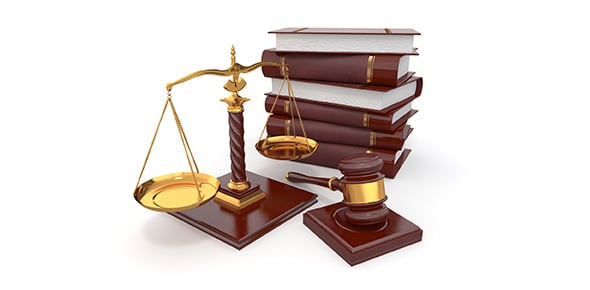Performance of contract means the performance by the parties of their...
A party is said to have performed his promise when he has...
Where the manner and time for performance is prescribed by the...
A contract involving personal skill of the promisor, can be performed...
Where one person makes a joint promise to more than one person, then...
A promises to paint a picture for B for Rs. 10,000 a dies before...
A, B, and C jointly owe Rs. 60,000 to D.A was compelled by D to pay...
Can a time - barred debt be adjusted by a creditor, where the debtor...
Performance of contract means the performance of respective...
A entered into contract with B to deliver certain goods at a...
Performance of contract may be
Where promisor dies before performance of a contract involving persona...
Which of the following statements is correct?
The expression 'time as the essence of contract' means that...
Where two or more persons jointly enter into an agreement with...
Failure to perform the contract within the fixed time where time is...
A, B and C jointly promise to pay Rs. 60,000 to D. Before performance...
Which of the following is the essential requirement of valid...
Which of the following statement is a correct regarding the...
On rejection of valid tender of performance by the promisee, the
In commercial transactions, time is considered to be the essence of...
Where neither party makes any appropriation, then as per Section 61,...
In case of __________ , each party is a promisor as well as...
In case the promisor dies before the performance of the contract, then...
A and B promise to marry each other. In this case there are
Where each party is a promisor as well as promisee, it is a case of
The fulfillment of their respective promises by the...
Which of the following persons can perform the contract?
A party who has performed his respective promise under the...
The promises forming consideration for each other are called
Where the time for performance is not specified in the contract and...
The promises which are to be performed simultaneously, are know as
Where payment by a debtor is made without any express indication of...
A owed a large sum a of money to B . C, a friend of A. offered a to...
Where a promisee releases one of the several joint promisors, then the
Where the performance of a promise by one party depends upon the prior...
Which of the following are the categories of reciprocal promises?
Where one party to a reciprocal promise prevents the other party form...
A contract become ___________ where time is essence of the...
A party bound to perform the promise may make an offer of...
Under the English Law, the release of one of the joint promisors, is...
The performance of contract can take place by
A valid tender of promise
Where no place is specified in the contract, the promise should be...
A, B and C jointly promise to pay Rs. 60,000 to D. Now suppose if...
A contract___________ on valid performance of contractual...
The rules relating to performance of joint promises are contained in
Which of the following statement is incorrect?
A agreed to a pay Ra, 10,000 to B, and in consideration B agreed to...
_______ means an offer of performance by the party.
On the valid performance of contractual obligations by the parties,...
Under the Indian Contract Act, the contract must be performed by...
The assignment of contract by operation of law takes place
The obligation of the parties to their respective promise is provided...
The parties to the contract may discharge their duties to perform...
A, B, and C jointly promise to pay Rs. 30,000 to D. For recovery of...
A, B, and C jointly promise to pay Rs. 9,000 to D. D releases A form...
The term 'reciprocal promise' is defined in
The sale of goods for cash is an example of reciprocal promise known...
A contracted with B to clear B's mine and remove a rock form...
Where the debtor does not expressly intimate as to which debt the...
Where the promise by each party is to be performed without waiting for...
A owes Rs. 50,000 to B. Before clearing his liability. A dies leaving...
Where the day for performance is specified, then the promise must be...
The rules relating to appropriation of payments are contained in
The refusal by the promisee to accept a valid tender of...
On the death of the joint promisors before the performance of the...
A agreed to construct a house for B, and B agreed to supply the...
Where time is not the essence of the contract, failure to perform the...
Where a party to contract transfers his rights under the contract to...
On rejection of valid tender of money by the creditor, the debtor...
When two or more persons have made joint promise, them unless the...
Where in case of reciprocal promise, a person promises to do certain...
Where the debtor instructs the creditor to which debt the payment is...
Unless the performance is dispensed with or excused under the...

















